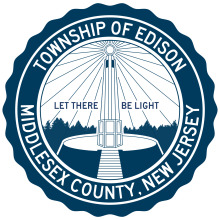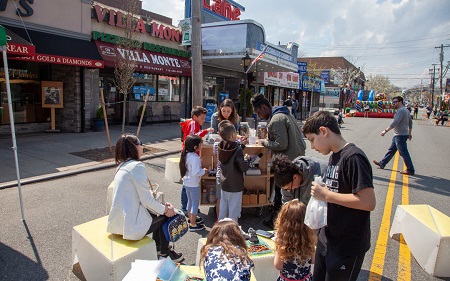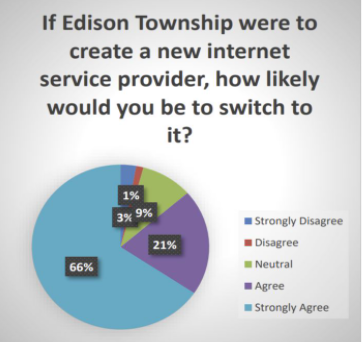
Fast, affordable Internet access for all.

After years of planning, Edison, New Jersey officials are moving forward on a municipal fiber plan built on the back of a $2 million American Rescue Plan Act (ARPA) grant. While the funding was originally announced last summer by state leaders, city officials only just passed a resolution last week accepting the grant.
Edison residents have long complained of a local broadband monopoly at the hands of Optimum, resulting in spotty access, slow speeds, and high prices. While Edison wants to break the competitive logjam, the full cost and scope of Edison’s as-yet-unfinished plan remains unclear.
Edison spent $36,750 on a feasibility study in 2022 to determine the plausibility of building a citywide fiber network. The resulting study by Matrix Design Group found that 87 percent of Edison locals would likely switch to a city-owned and operated fiber network if the option existed.
"Ending Optimum’s monopoly in Edison is a high priority," Edison Mayor Sam Joshi wrote on Instagram and Facebook shortly after the study was published, calling it "a step towards internet freedom."

But there’s been no formal plan released by the city despite several years of debate. Officials indicated that the 18-month development project should involve the construction of an Edison-owned fiber network that will then be leased and managed by an undetermined partner.
Edison officials did not respond to a request for comment.
The delays have left an opening for critics of municipal broadband, who have been peppering local news outlets like MyCentralJersey.com with a lot of hand-wringing and false claims.
The paper’s feature on Edison’s planned network heavily features local residents, some anonymous, spreading falsehoods about the supposed dangers of community-owned broadband.

"My research shows the only (town) arguably that has been able to do it profitably is Chattanooga, Tennessee, that is a service area with maybe three times the population of Edison,” laments one resident.
In reality, ILSR data shows that there’s a long line of successful municipal broadband ventures. One recent ILSR study showcased how frustration during the COVID telecommuting and home education boom drove a significant rise in the deployment of community-owned broadband networks, with 47 new municipal broadband networks coming online since 2021.
That community-owned and operated broadband networks are an inherently dangerous boondoggle is a provably false narrative that’s long been seeded in the press and discourse by regional monopolies terrified of popular, community-supported alternatives to monopoly power.
Edison officials, angry at decades of expensive, substandard service from Optimum, say that better, affordable broadband access remains within reach.
"It is possible to do it,” Council President Nishith Patel told the outlet. “It's not that complex. I think it's necessary if it's feasible, and I believe the state believes in us. And I hope that we can get this done for the residents and provide them another alternative beside the monopolies they have now.”
Inline image of Street Lab Uni Project in Edison, NJ courtesy of Street Lab, Attribution-NonCommercial 4.0 International (CC BY-NC 4.0)
